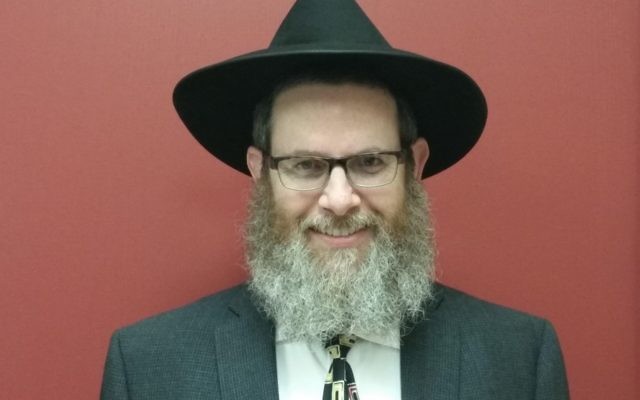New Chaya Mushka Head Eager to Blend Chabad, Montessori
By R.M. Grossblatt
Rabbi Michoel Druin began his duties Tuesday, Feb. 16, as the first head of school for the Chaya Mushka Children’s House Elementary and Middle School in Sandy Springs.
While the Chabad-operated Chaya Mushka Children’s House preschool, under the direction of Dassie New, follows the authentic Montessori program, Rabbi Druin said the upper school is Montessori-inspired.

In an interview, he said he sees “great potential” in the blended learning, self-directed program that complements the beliefs of Chabad. Chaya Mushka, which serves 65 children from first to seventh grades and is expanding to the eighth grade, is the area’s only Jewish day school using a Montessori philosophy.
Rabbi Druin was born in California and raised in Israel. He was awarded a master’s degree from Bellevue University, where his research included a Montessori program. He also completed the Lookstein Center Principals’ Program and the School Leadership Program of Harvard University’s Graduate School of Education.
In South Africa, where he met his wife, who also is an educator, Rabbi Druin founded the Machon L’Horah smicha (rabbinic ordination) program and Crawford College (now with 1,500 students), both in Pretoria. Although only 10 percent of the students at Crawford are Jewish, Rabbi Druin oversaw the entire school while heading a program for the Jewish students.
For the past five years, he served as the head of school for the Jewish Academy in Commack, N.Y., on Long Island. Under his leadership, 75 percent of the eighth-graders passed the High School Regents Exam, the highest percentage of students from any school in Suffolk County.
To prepare for his appointment in Atlanta, Rabbi Druin visited Montessori Jewish day and secular schools in New York, including the well-known Chabad Lamplighters.
The Chabad educator gave an example of Montessori-inspired blended learning: If 15 children are in a classroom, five will be learning with a teacher, five will be working on their daily tasks in a Montessori fashion, and five will be learning online at computers, working at their own rate. Other schools, Jewish and secular, may use this approach to save money, as it could enable a teacher to monitor 45 students in a classroom, Rabbi Druin said, but “that’s not Chabad’s reason.”
At a recent Yeshiva University convention, Rabbi Druin tested the participants’ expectations for a Chabad Montessori school. The written responses showed “so much overlapping and synergy” between Montessori and Chabad, he said. “Many of the participants recognized Chabad’s outreach approach, where individuals are encouraged to interact and grow within Judaism at their own pace, which equates with the Montessori philosophy of teaching each and every child as an independent learner.”
Marie Montessori was an Italian physician who in the early 1900s gave children with special needs sensory and tactile tasks and saw them succeed. She then introduced her individualized methods to all children, especially preschoolers. Her school was known as the Montessori Children’s House, and her child-centered program was the Montessori Method.
In the Montessori Method, Rabbi Druin said, children may have, for example, 10 tasks for the day and may choose the order in which to accomplish them.
Another difference in the Montessori school is the attitude toward homework. Some educators believe that they need to eliminate homework and get all the work done at school.
“We, however, believe that instead of homework being something to get done with in school, the students go home feeling a sense of self-ownership in regards to their learning even while at home,” Rabbi Druin said. He added that “Montessori differs from traditional education, where the teacher owns the class and the students repeat what’s said to them to get a good grade.”
As the first head of school for Chaya Mushka’s elementary and middle schools, Rabbi Druin said he has been welcomed by local rabbis and feels the support of the community. Although he sees the benefits of Montessori, he doesn’t want to dismiss the philosophy of education in other schools in the Atlanta area.
To test the proficiency and growth of students in secular studies, Rabbi Druin plans to use the Measure of Academic Progress, or MAP, which assesses children by adapting to each one’s level. It will be used as a formative assessment, enabling teachers to fine-tune their instruction over the course of the year. MAP is part of the Northwest Evaluation Association, a not-for-profit global organization.
Success in the Judaics program will be measured by seeing the students develop skills and by hearing the parents “tell me that the children are enjoying what they are learning,” Rabbi Druin said. “It’s very subjective to measure kodesh.”
He hopes the children will be inspired by their heritage and plans to hire a program director to give them lots of opportunities to celebrate holidays and traditions in and out of school.
“I could do all the talking,” Rabbi Druin said at the end of the interview. “The parents should come see the school in action.”




comments